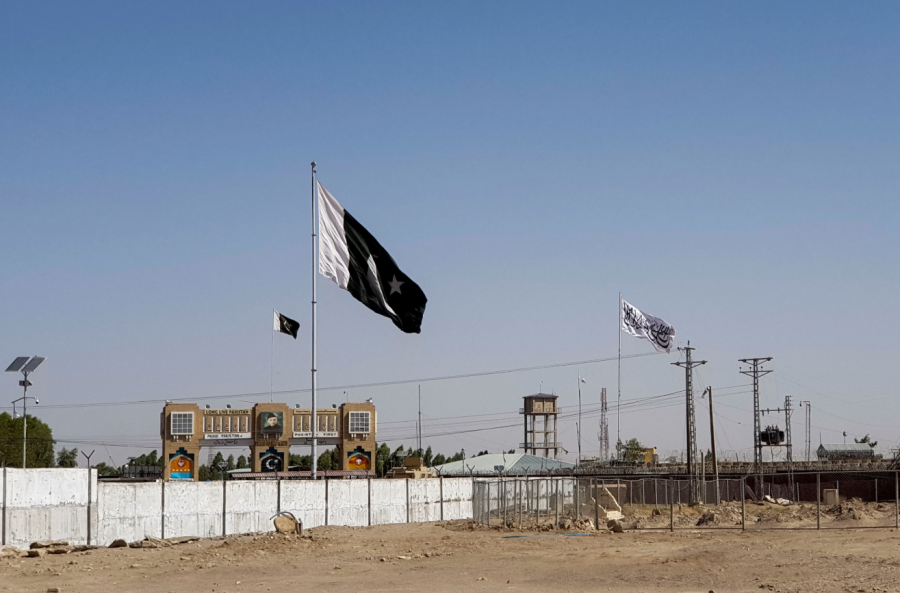Columns
New low in Pak-Afghan ties
Taliban’s lack of response to Pakistan’s security concerns is a source of mounting frustration for Islamabad.
Maleeha Lodhi
Relations between Pakistan and Afghanistan have hit another low as frustration mounts in Islamabad with the Taliban’s lack of response to its security concerns. This despite stepped up diplomatic engagement by Pakistan this year to reset ties with Kabul after heightened tensions and a prolonged hiatus in high-level diplomatic exchanges in the previous year.
Two days ago, Prime Minister Shehbaz Sharif publicly called on Kabul to choose between Pakistan and the TTP (Tehreek-i-Taliban Pakistan). He said cross-border attacks from Afghanistan were unacceptable. This was the latest manifestation of renewed tensions.
Earlier, officials of the two countries had exchanged hot words. In late August, the Afghan foreign ministry accused Pakistan of launching air strikes on two of its eastern provinces, Nangarhar and Khost, calling this a “provocative act” that claimed the lives of several civilians. Afghan Defence Minister Mohammed Yaqoob said Pakistan was shifting blame for militant attacks on its soil to Afghanistan to hide weaknesses of its own security apparatus. Pakistan’s foreign ministry spokesman dismissed Yaqoob’s assertions, describing them as an effort to mask the seriousness of the situation.
Attacks in Pakistan by the TTP rose sharply after the Taliban returned to power four years ago. The Taliban takeover enabled the outlawed militant group to reorganise and escalate cross-border attacks, posing a serious threat to Pakistan’s security. Countless rounds of talks on the TTP between Pakistani officials and Taliban authorities yielded little. Pakistan repeatedly urged Kabul to disarm the TTP, detain its leaders and rein in its violent activities. Taliban leaders offered assurances and pledged to act, often asking for time. But they did nothing. Despite increasingly tough public warnings by Pakistan to Kabul, the Taliban took no meaningful action.
Heightened militant activity from across the border, a spike in terrorist attacks and rising casualties among security personnel then compelled Pakistan to launch kinetic strikes targeting TTP figures and hideouts in Afghanistan.
In April 2024, in a departure from the past, Islamabad publicly acknowledged Pakistan had carried out air strikes against militant sanctuaries in Afghanistan. This met with a toughly worded response from Kabul and rise in border tensions. Islamabad, however, warned such actions would continue unless the Taliban changed course. In December 2024, Pakistani fighter jets carried out unannounced air strikes against TTP hideouts at four locations in Paktika province. This followed an audacious TTP attack on a border post in Makin which left 16 security personnel dead. This forced Pakistan to retaliate.
At the same time, Pakistan tightened restrictions on transit trade, which involved a ban on many items that could be imported by Afghanistan via Pakistan, as well as imposed limits on bilateral trade. This was aimed at raising the costs for the Taliban for their non-compliance with Islamabad’s TTP demands. Pakistan also began expelling undocumented Afghans residing in Pakistan and deporting those holding Afghan citizen cards that were issued by Pakistani authorities a few years ago. Around 1.2 million Afghan refugees have been repatriated so far in what many see as an accelerated process.
This year, however, Pakistan switched course from this purely coercive approach to a carrot-and-stick policy. It hoped that resumption of diplomatic engagement with several confidence-building trips to Kabul by Special Representative Mohammed Sadiq and a visit by the Afghan Commerce Minister Nooruddin Azizi to Islamabad in April would encourage Taliban leaders to respond to its TTP concerns.
The high point of the revived diplomatic engagement was the visit of Deputy Prime Minister and Foreign Minister Ishaq Dar to Kabul in late April 2025. Much progress was made during that visit on bilateral and transit trade issues, including the Preferential Trade Agreement and the Afghanistan-Pakistan Transit Trade Agreement, with the Pakistani side acceding to many Taliban requests in this regard. The Taliban promised to take steps to effectively ‘contain’ the TTP. But these again turned out to be empty promises.
Pakistan nonetheless continued with its diplomatic strategy of engaging the Taliban authorities. It invited Afghan Foreign Minister Amir Khan Mutaqqi for talks to Islamabad and made preparations for his visit just ahead of the trilateral meeting in August between Pakistan, China and Afghanistan in Kabul. Muttaqi’s visit did not take place because of the UN travel ban on him. Pakistan had sought but was unable to get a waiver from the Security Council’s sanctions committee to allow him to travel. In July, Dar visited Kabul to sign a framework agreement between Pakistan, Uzbekistan and Afghanistan for the feasibility of a railway project aimed at promoting regional connectivity,
Dar went again to Kabul for the trilateral meeting — his third visit in five months. Despite positive public statements issued by all sides, the meeting proved to be inconclusive on the most important issue on its agenda: security. Both the Pakistani and Chinese delegations were disappointed by the outcome. No joint statement was issued because the Taliban refused to name TTP and ETIM (East Turkestan Islamic Movement) in it. This was in contrast to the previous trilateral held in Pakistan in 2023, when these terrorist organisations were named in the joint declaration that was issued. This suggested that the Taliban, far from committing to take concrete steps against these militant organisations, were backtracking.
While Pakistan’s frustration with the Taliban is probably at a record high in the face of continuing cross-border terror attacks from Afghanistan there is no suggestion of any disengagement by Islamabad with Kabul. This could risk a breakdown in relations which does not serve Pakistan’s interests. It will also not persuade the Taliban to change course given what happened the last time this approach was tried.
This leaves Pakistan with a policy dilemma. It has already conveyed to Kabul that cross-border attacks that produce heavy casualties will invite a kinetic Pakistani response. It is possible that ‘hot pursuit’ by Pakistan might involve air strikes deeper into Afghan territory; so far, they have been limited to border areas. The complex relationship between Pakistan and Afghanistan will continue to face challenges even as Islamabad mulls over what else it can do beyond the carrot-and-stick policy it is following.
- DAWN (Pakistan)/ANN




 11.96°C Kathmandu
11.96°C Kathmandu















